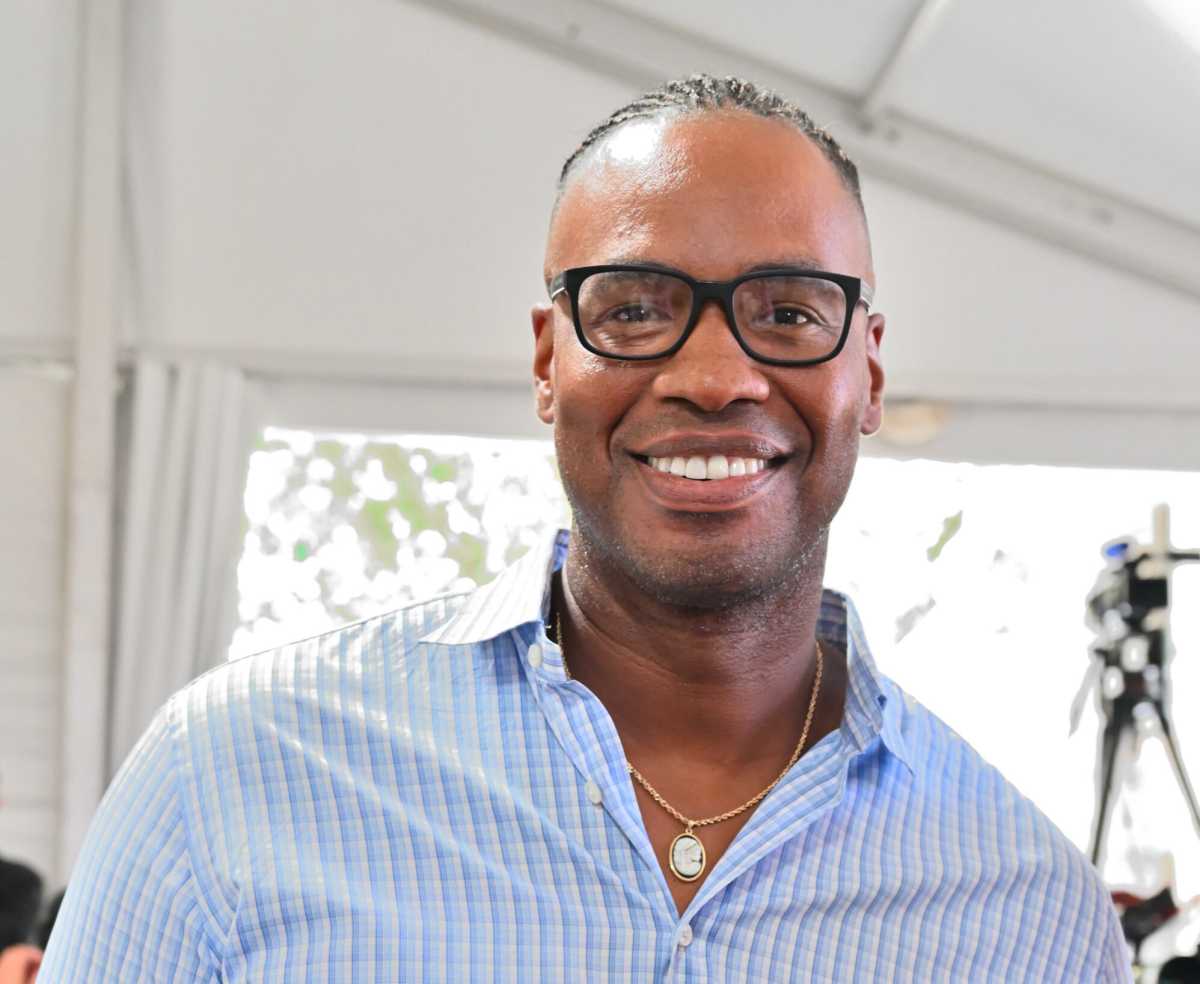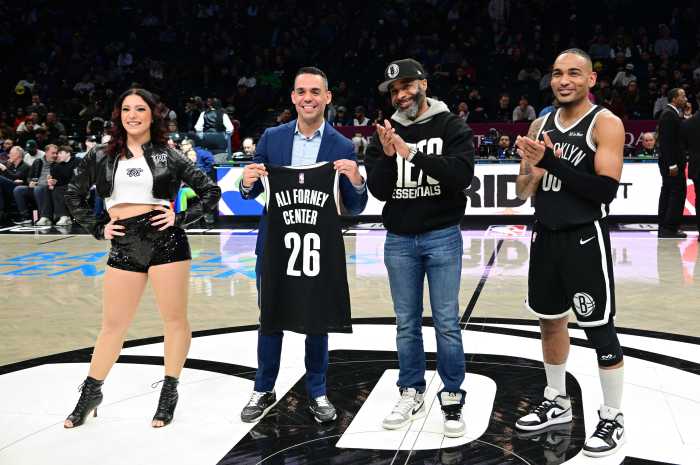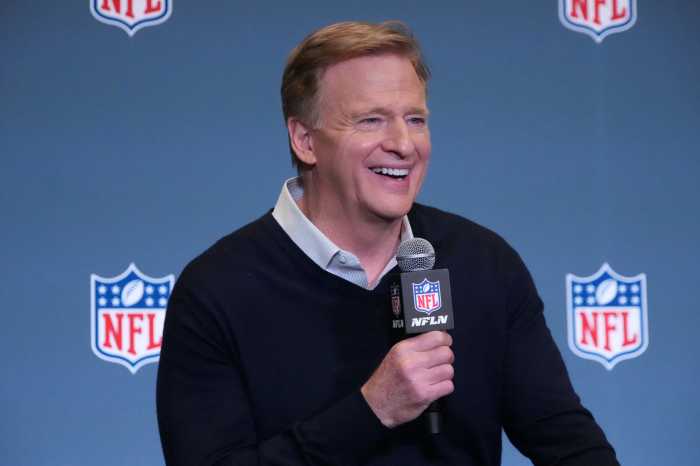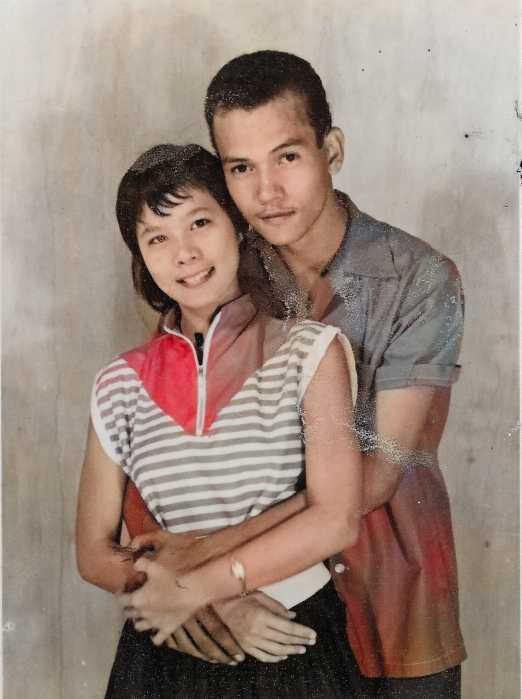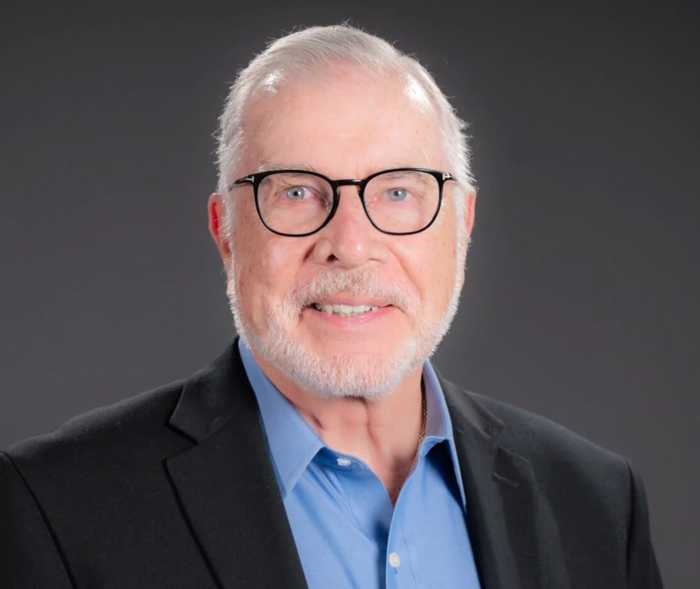Jason Collins was in the twilight of his NBA career when he stepped on the court at the Barclays Center in March of 2014 as a member of the Brooklyn Nets. A seasoned veteran, Collins was no stranger to professional basketball: He played with six franchises across 13 seasons, including with both the New Jersey Nets and, later, the Brooklyn Nets.
This time, though, was different. The 35-year-old journeyman had recently made history by becoming the first out gay player to play an NBA game — a monumental moment in American sports. Collins came out in a 2013 interview with Sports Illustrated and subsequently signed with the Nets in February of 2014, paving the way for his season debut on the road against the Lakers. But the hometown crowd was waiting for him in Brooklyn.
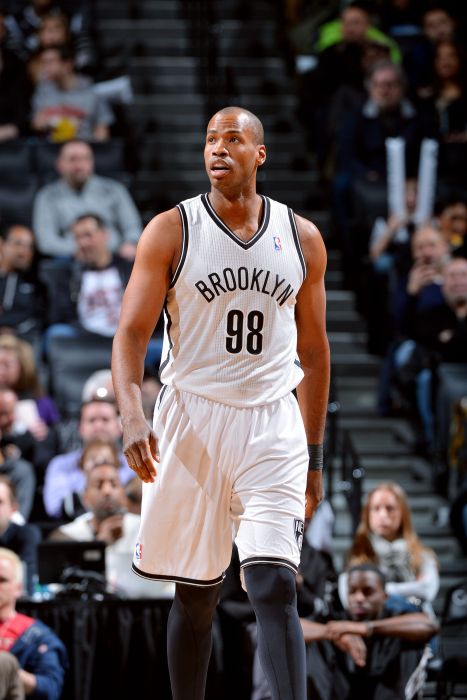
In his first home game in Brooklyn after coming out, the crowd exploded the moment Collins entered the game. Chants of “Jason Collins” reverberated through the Barclays Center.
“That moment was pure love — love and support,” Collins, now 45, told Gay City News during a June 28 interview at an event marking the opening of the new Stonewall National Monument Visitor Center. “The fans, the community all supported me in that moment.”
He added: “Taking the court for the first time on my home court in the Barclays Center was absolutely something that I will remember for the rest of my life. The fans in New York City are second to none. We saw it this year with the Knicks and the run that they made.”
Collins went on to play 22 games for Brooklyn in what would be his final NBA season, but those 22 games proved to be the most consequential contests of his life — and it’s still evident today. Collins has remained close to the Nets by joining the team every year for its Pride Night game to honor recipients of the annual Jason Collins Award for Courage and Leadership. This past year’s recipient was the Brooklyn Community Pride Center and past honorees have included Brooklyn Pride, the Stonewall Inn, and the Audre Lorde Project.
Collins also remains involved with the NBA. Sitting with his partner, Brunson Green, Collins was attending the opening of the Stonewall National Monument Visitor Center as part of his role with the NBA Cares program, which is the league’s volunteer-based global social responsibility program. That initiative, Collins said, intends to bring positive change to society, including through LGBTQ community events.
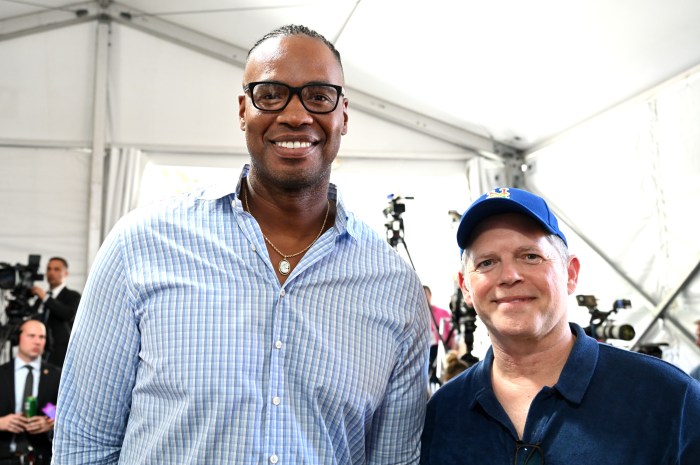
Collins also spends his time traveling to many different organizations, schools, and universities to engage in public speaking. Collins’ public engagements, though, represent a stark contrast to the era before he came out when he spent most of his NBA career outside of the spotlight. He was not a star player — at least not until his final season — and he often avoided attention prior to coming out because he did not want others to find out.
Collins initially came out to some friends and family in 2012 when he was playing for the Boston Celtics. At the time, he recalled, there was a rumor that four NFL players were going to come out in a joint statement — and although he was waiting for that moment to come, it never did. Collins remembered seeing a scene from the film “Moneyball” — a baseball flick about finding success on a tight budget — when it was mentioned that any player who is the “first” to do something tends to get bloodied up.
“I remember seeing that and thinking, ‘I don’t really want to be bloody,’” Collins said at a 2019 event covered by Gay City News. “I wanted somebody else to do it and then I’d come out and make my announcement and hopefully start a wave.”
After coming out, Collins — who wore number 98 to mark the year when Matthew Shepard was killed in a high-profile anti-gay murder case — saw his jersey become the best-selling one in the NBA.

Today Collins acknowledges that the sports landscape has changed since before he came out — and even since he came out. Collins’ coming out story has paved the way for other athletes to live authentic lives, but at the same time, the nation has witnessed a devastating wave of discriminatory policies banning transgender athletes from participating in sports.
Athletes looking to come out should first and foremost prioritize their safety, Collins said.
“Make sure that you’re in a safe space, build your support system, and know that whatever you’re going through, you don’t have to go through it alone,” Collins explained, citing the work of organizations like Athlete Ally, a non-profit working to build inclusion in sports. “There are a lot of great organizations that you can find online.”
Other support systems, Collins said, can include “your family or friends, those people that you trust, that put you in a positive mindframe.”
“Rely on that support system and know that whatever you’re going through, you do not need to go through it alone,” he said.

